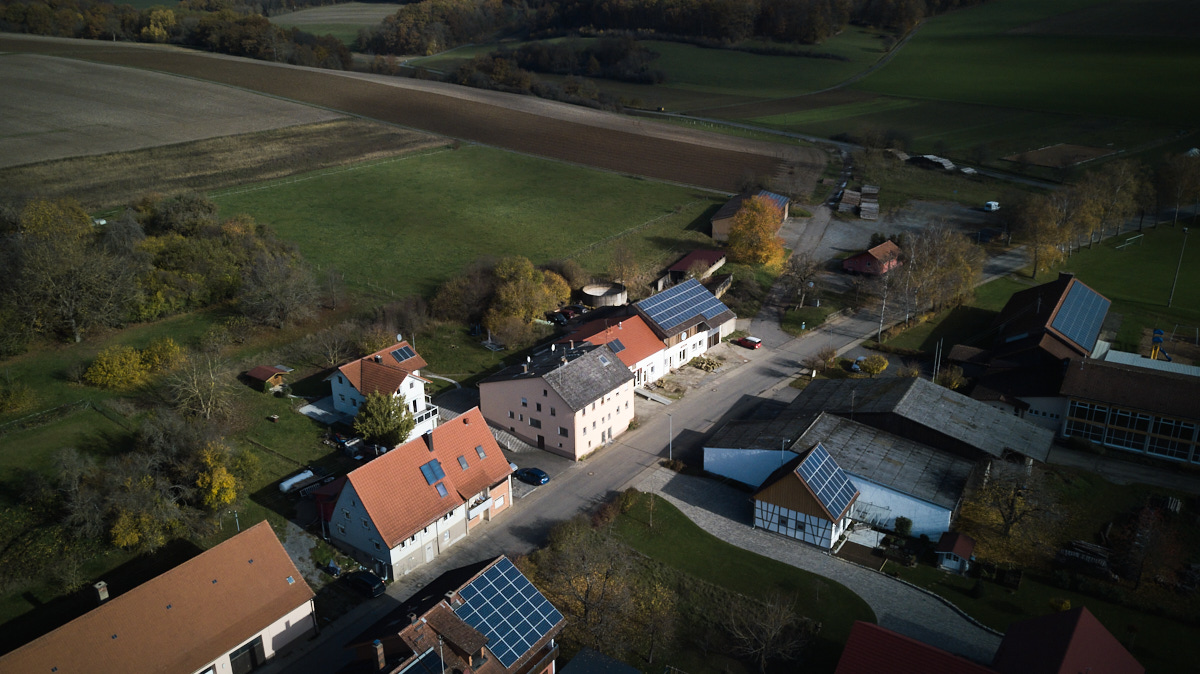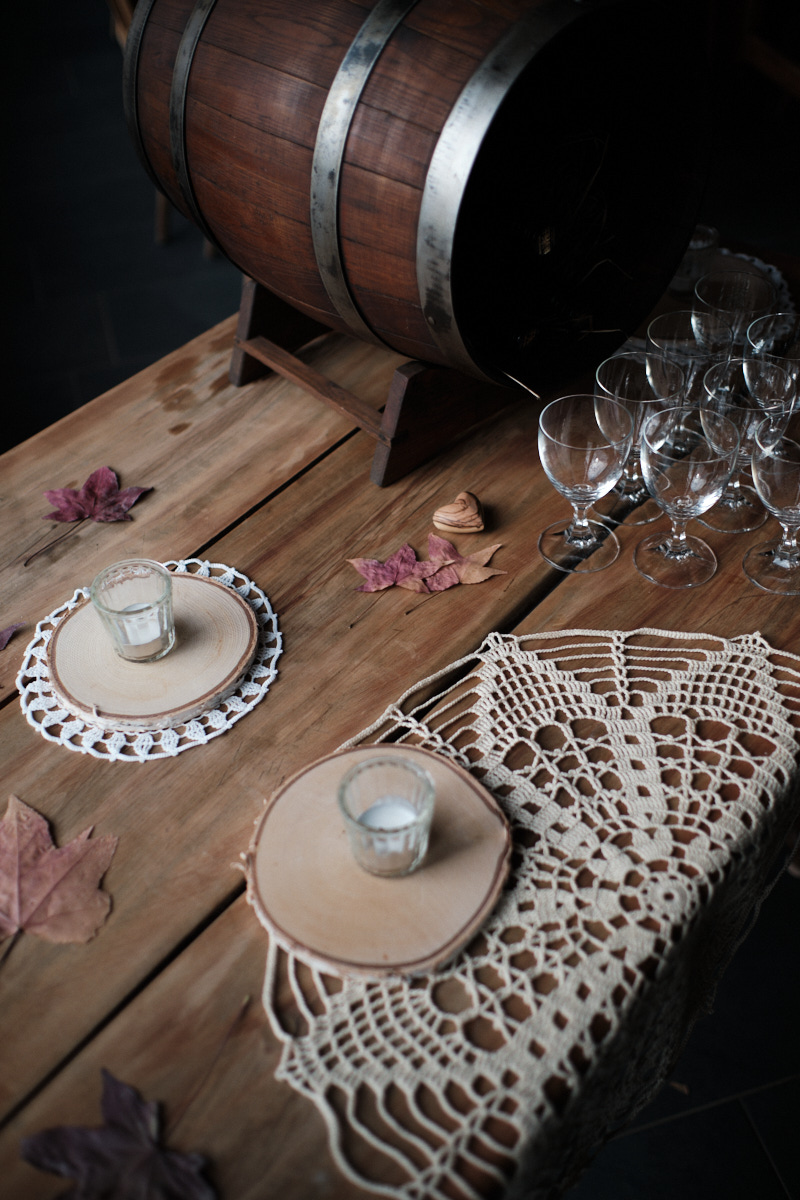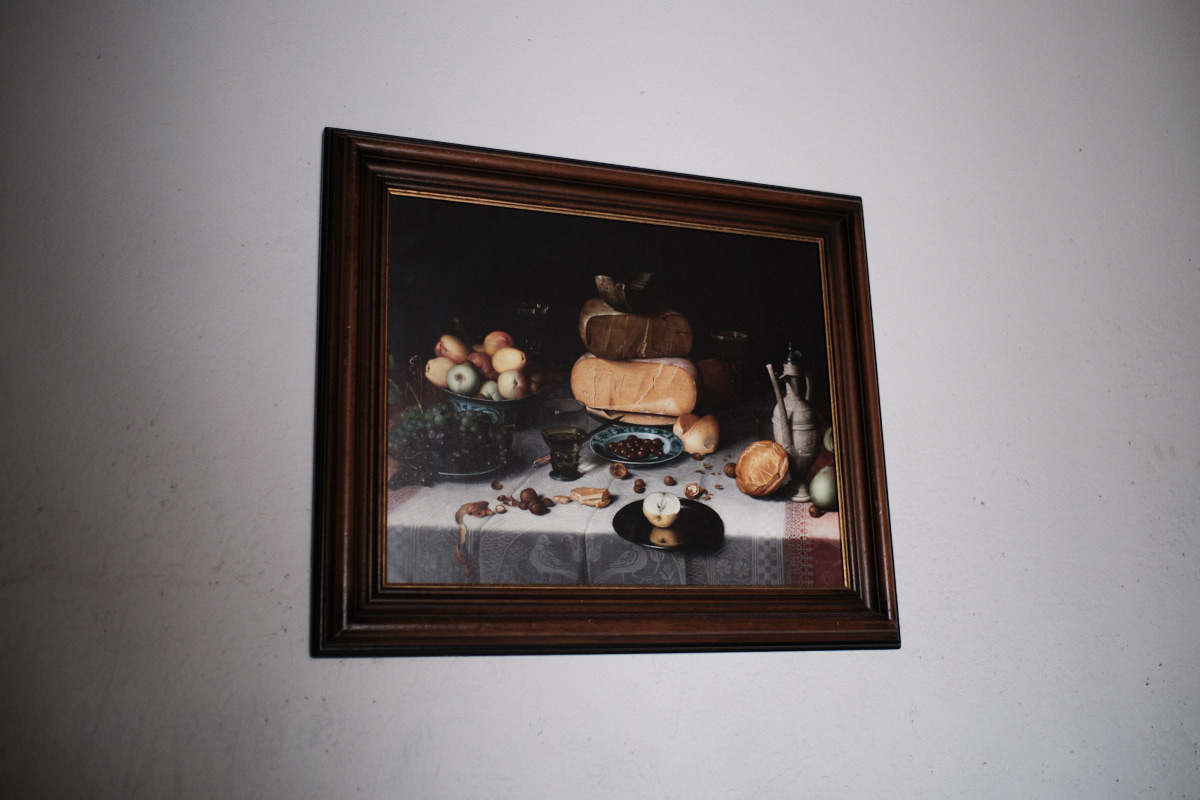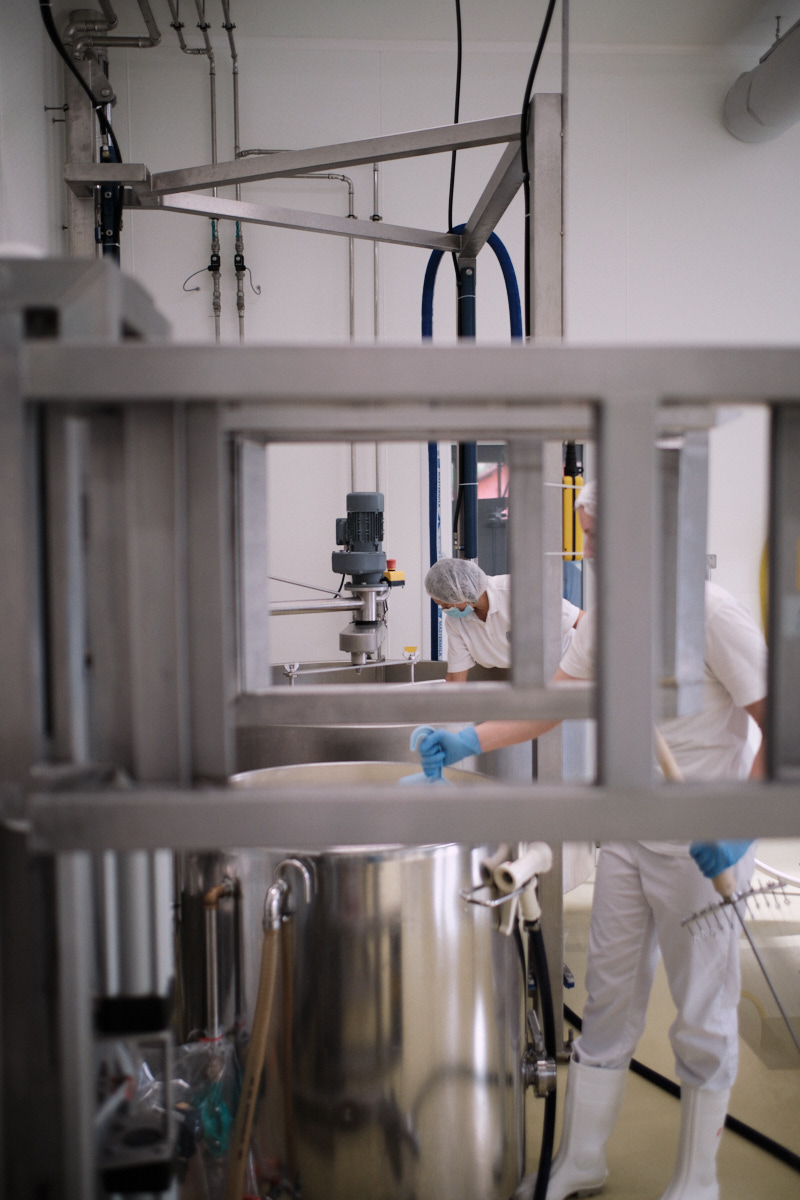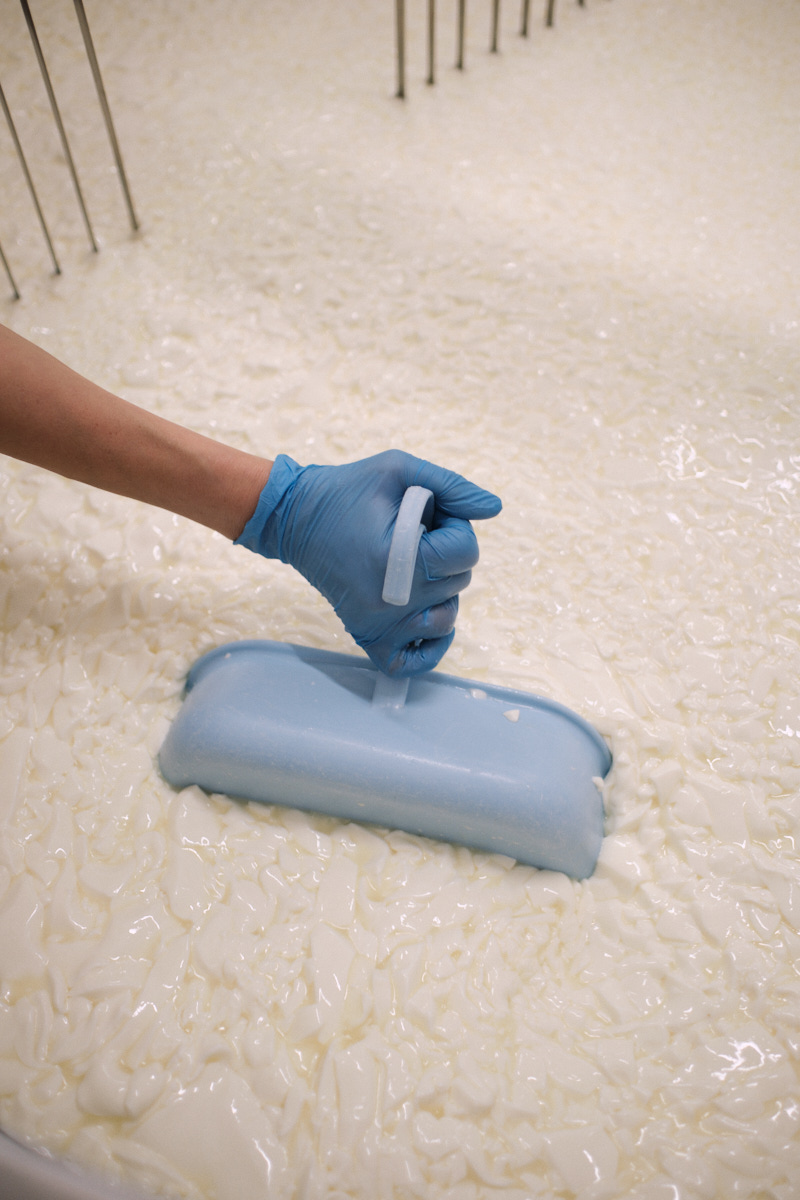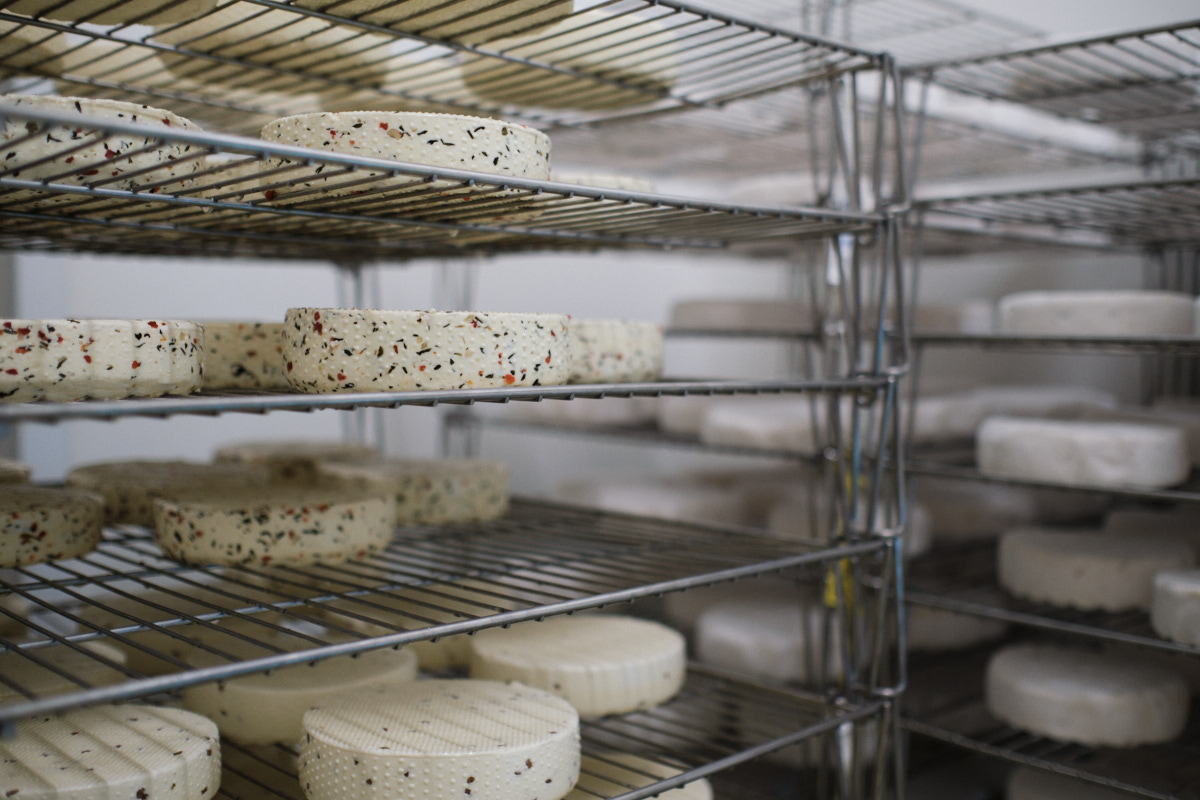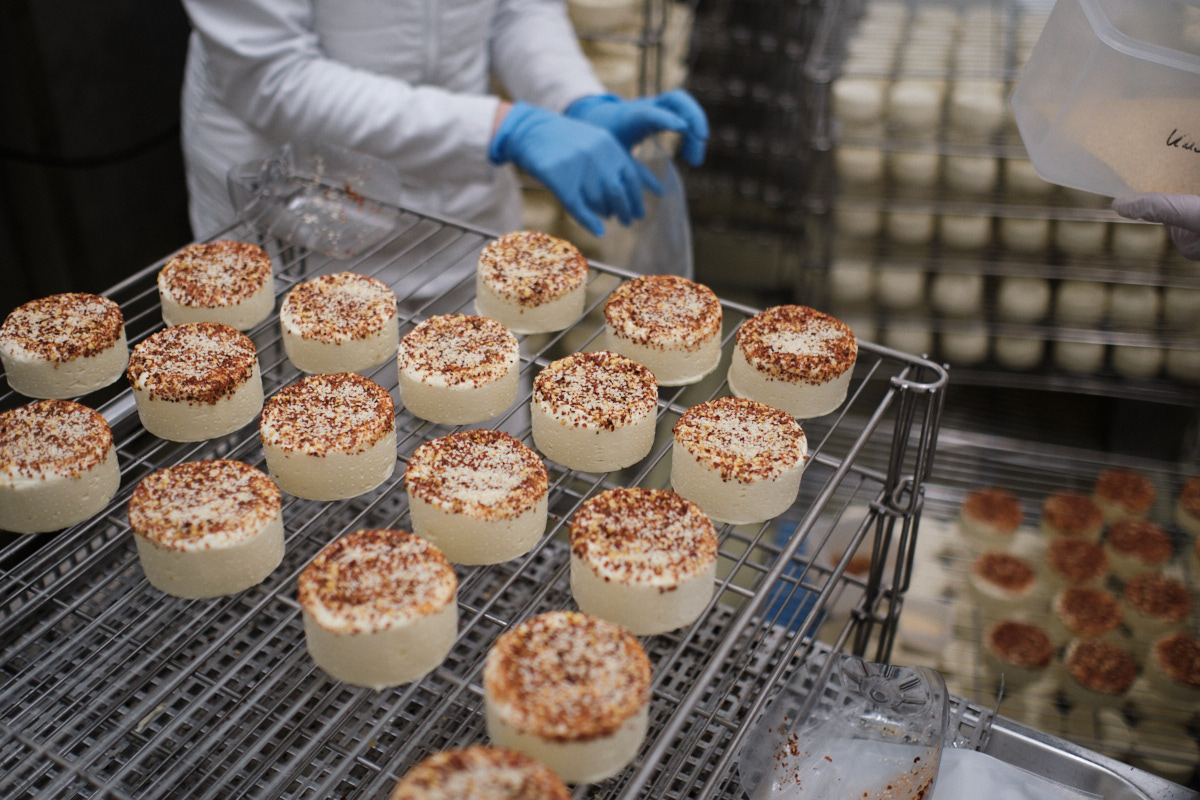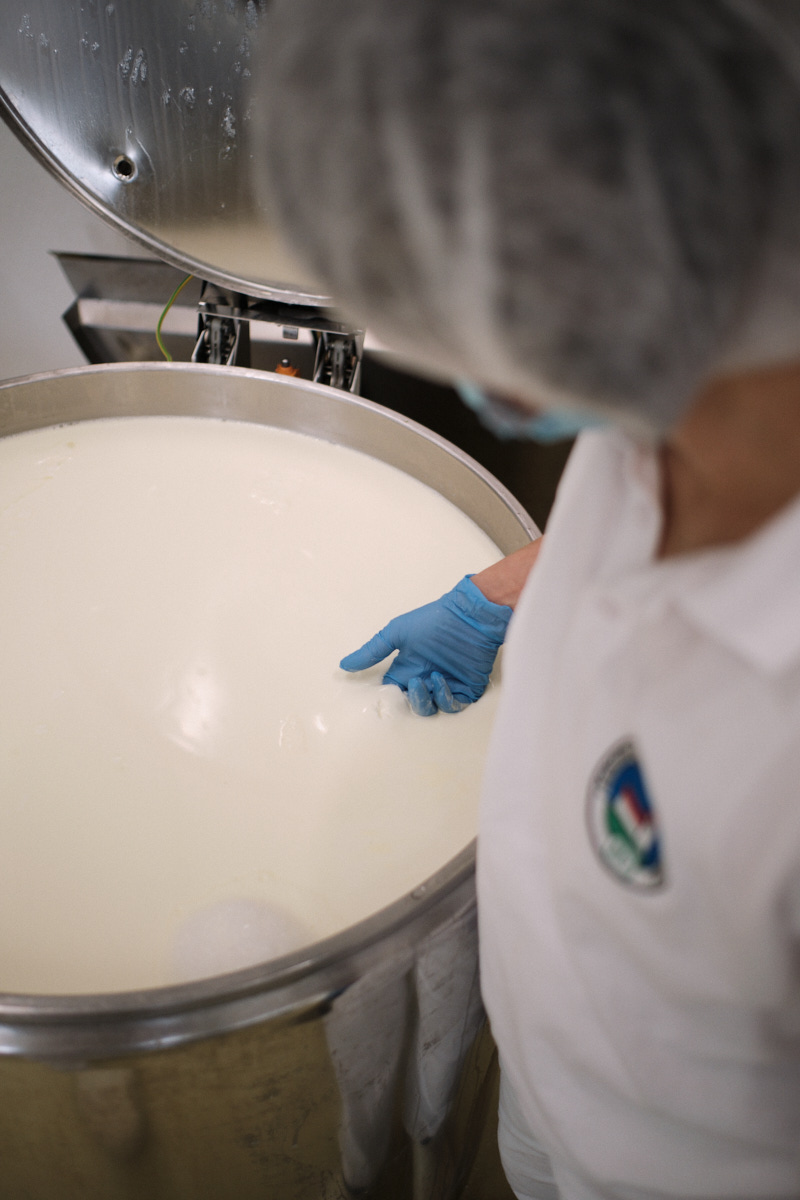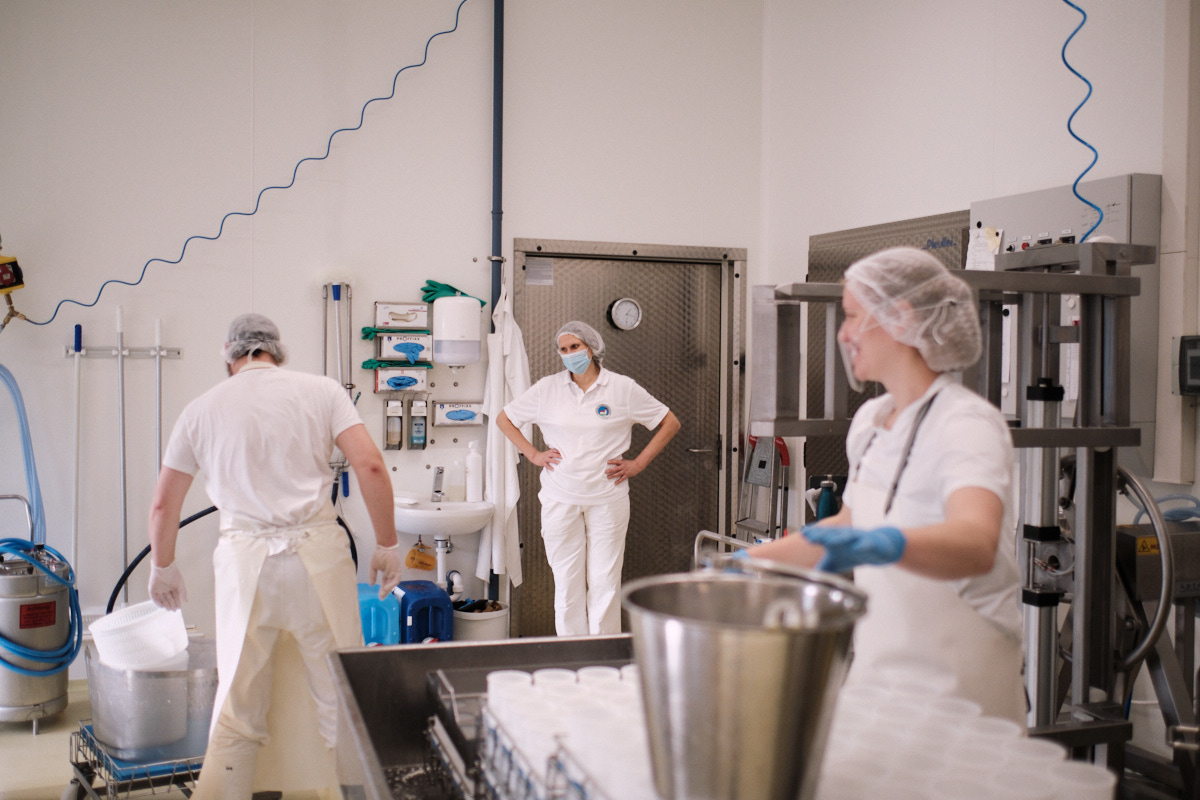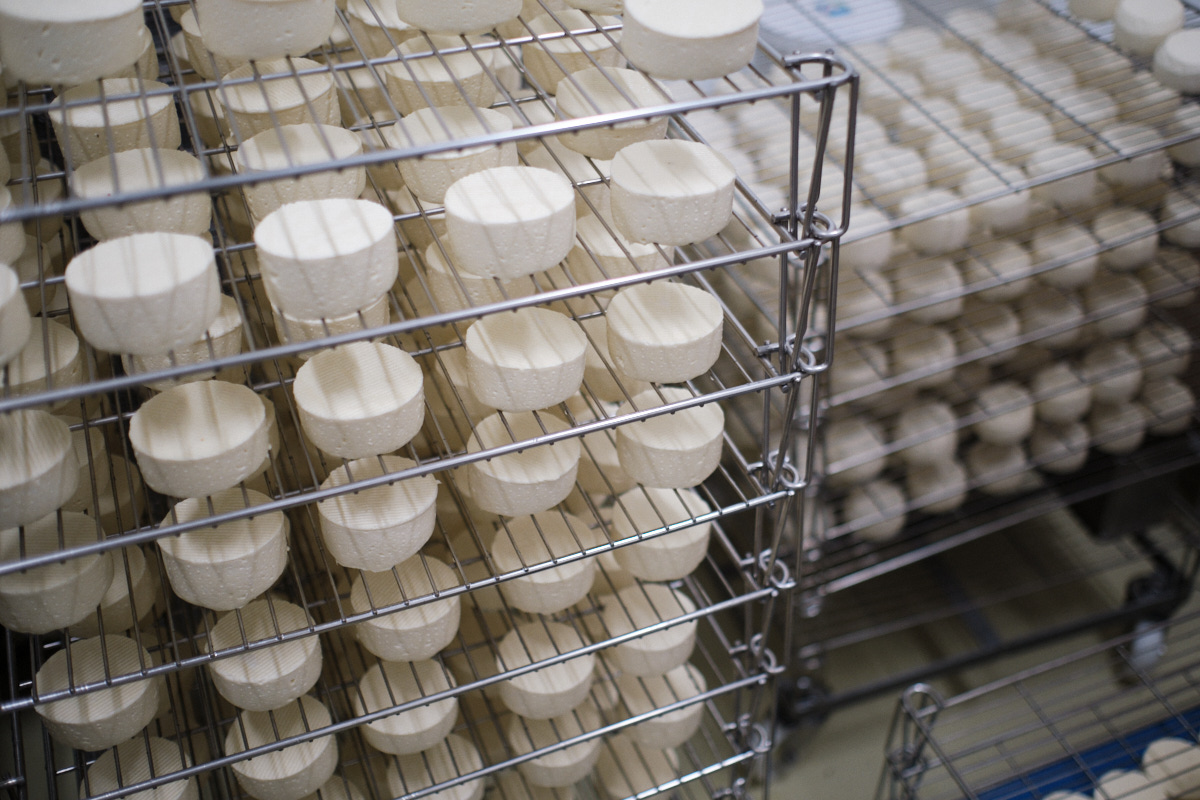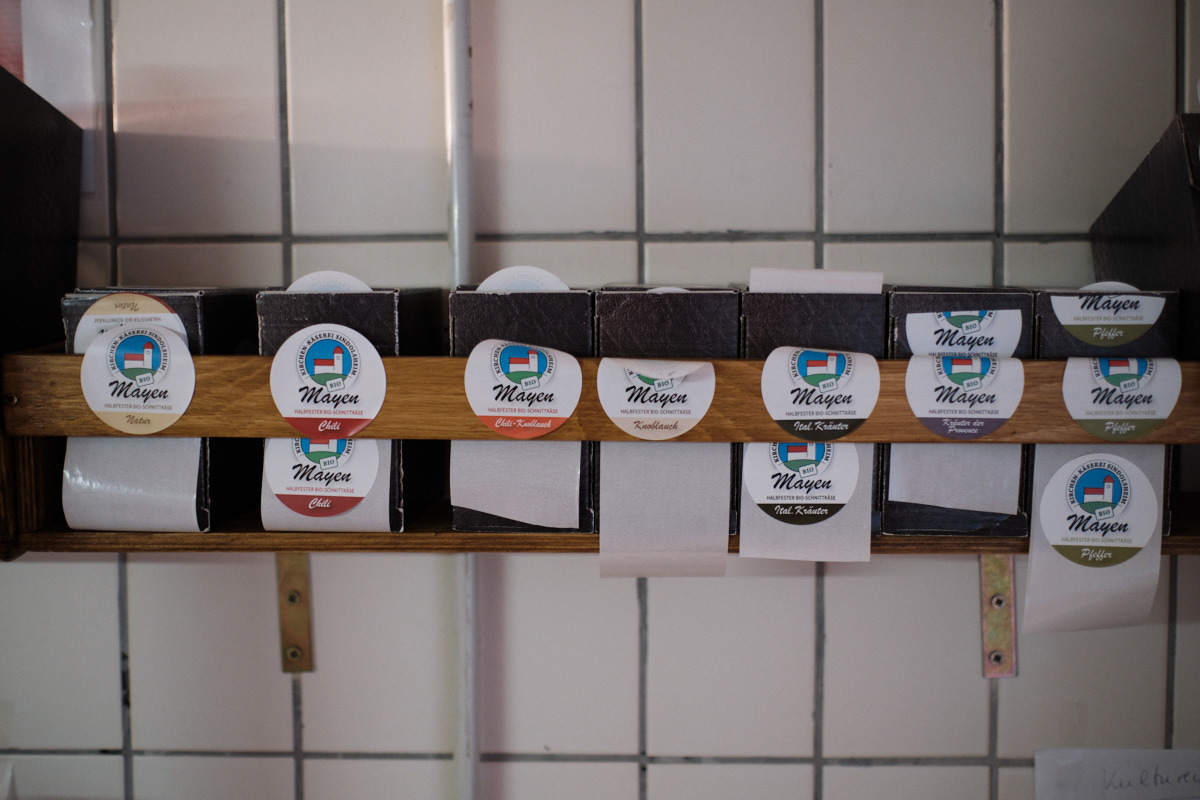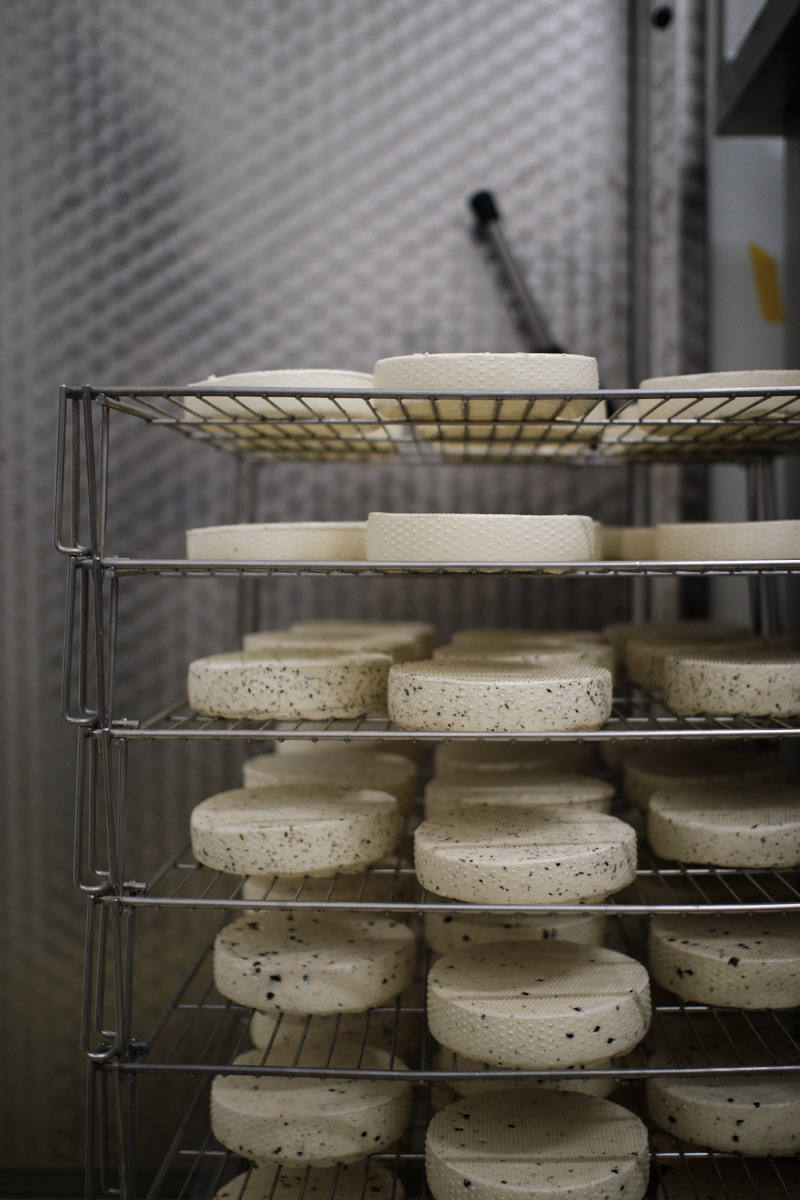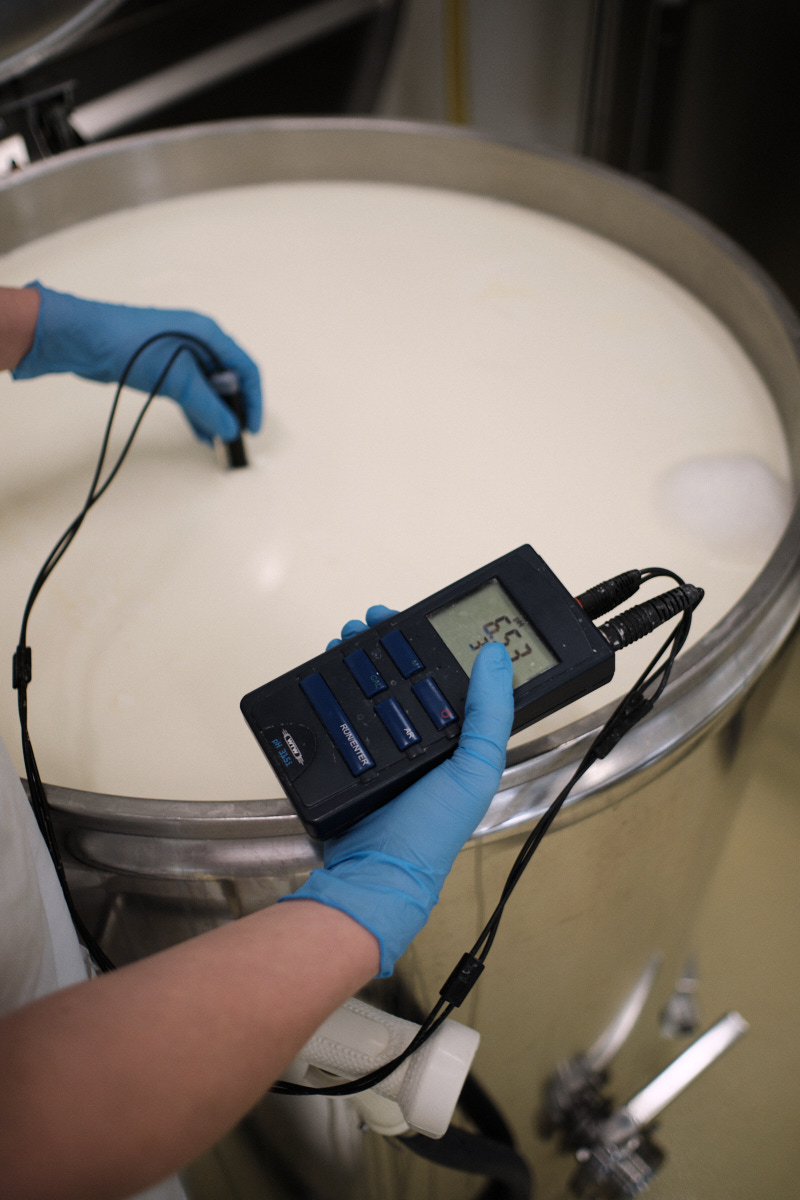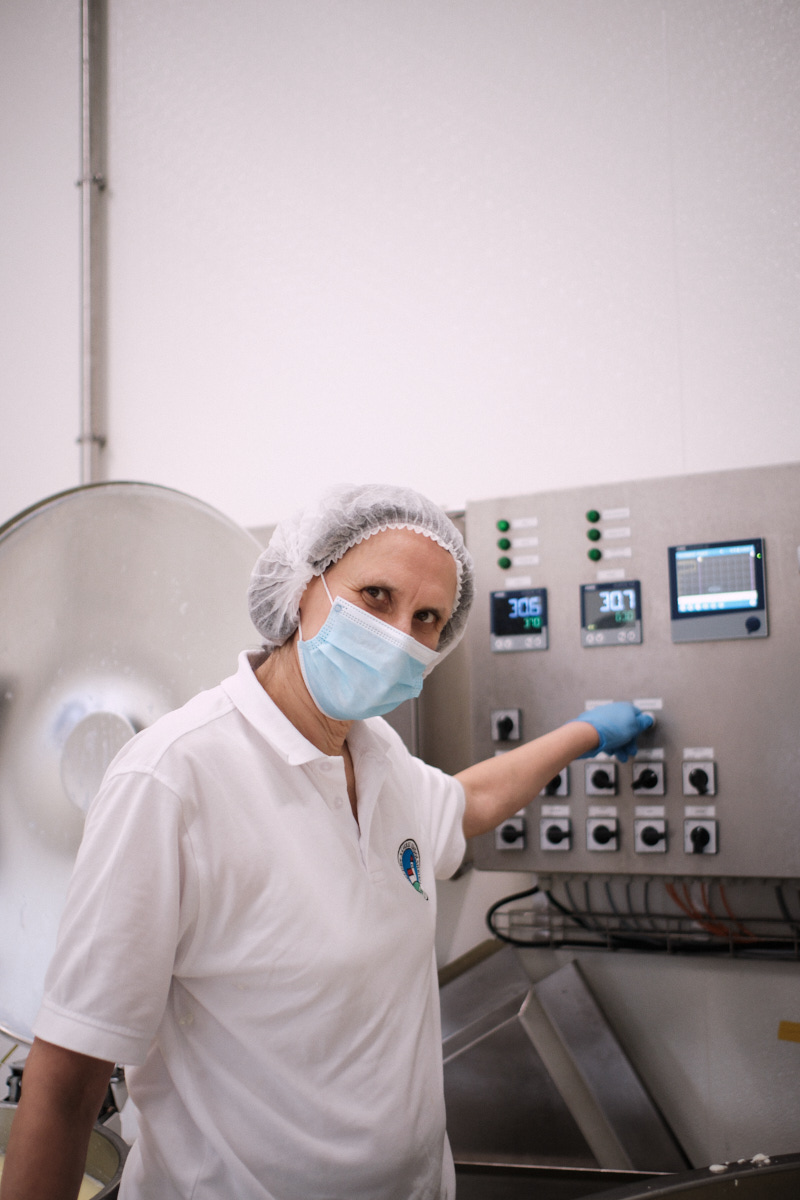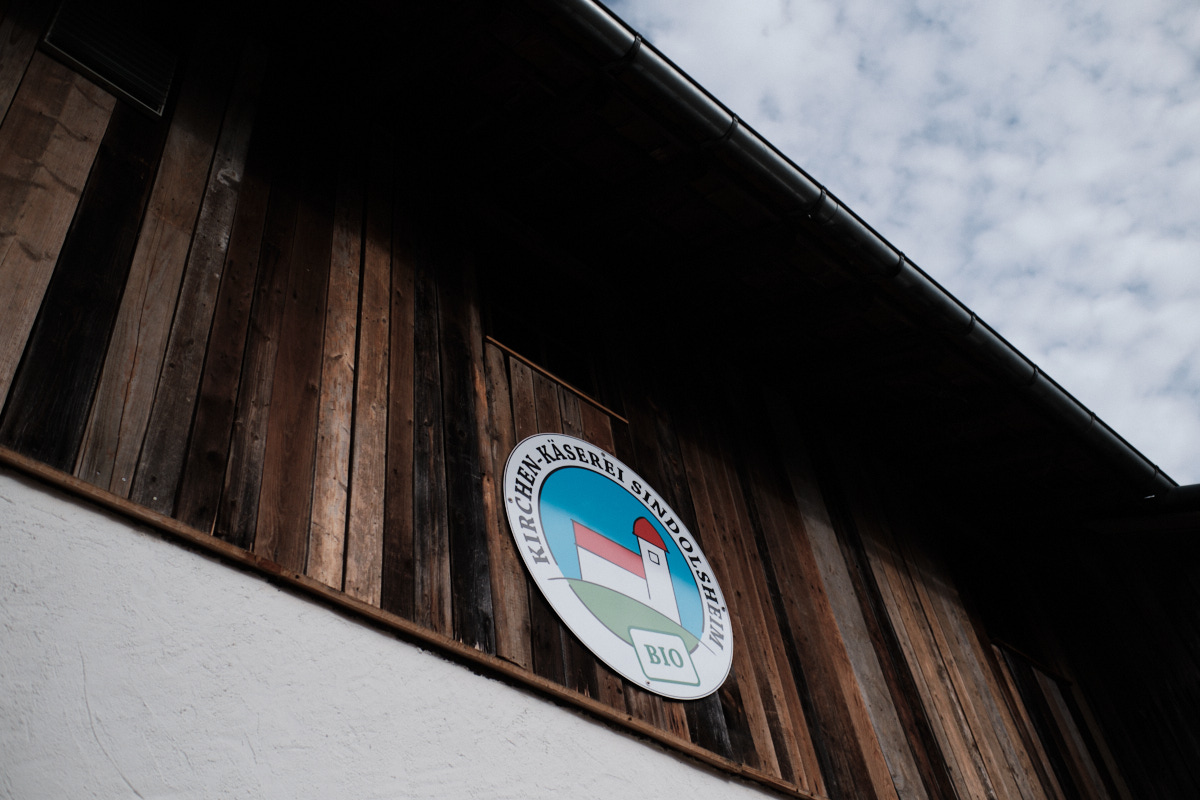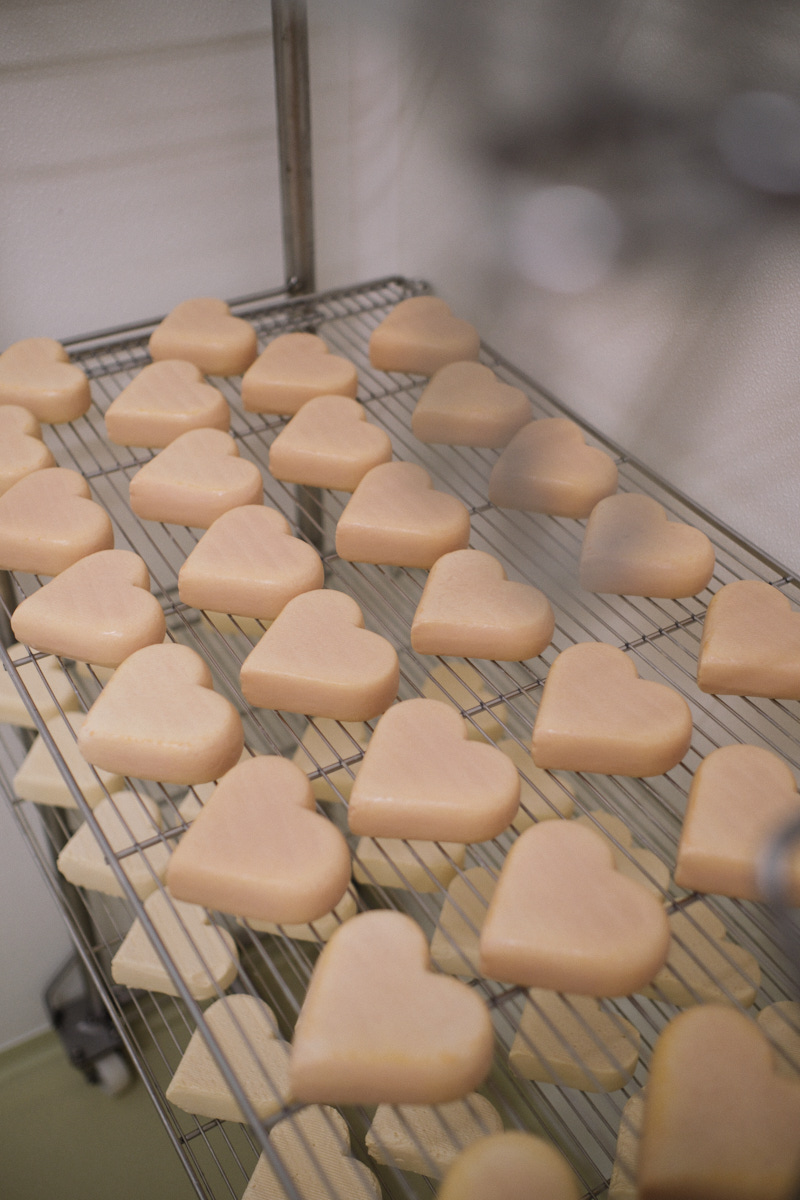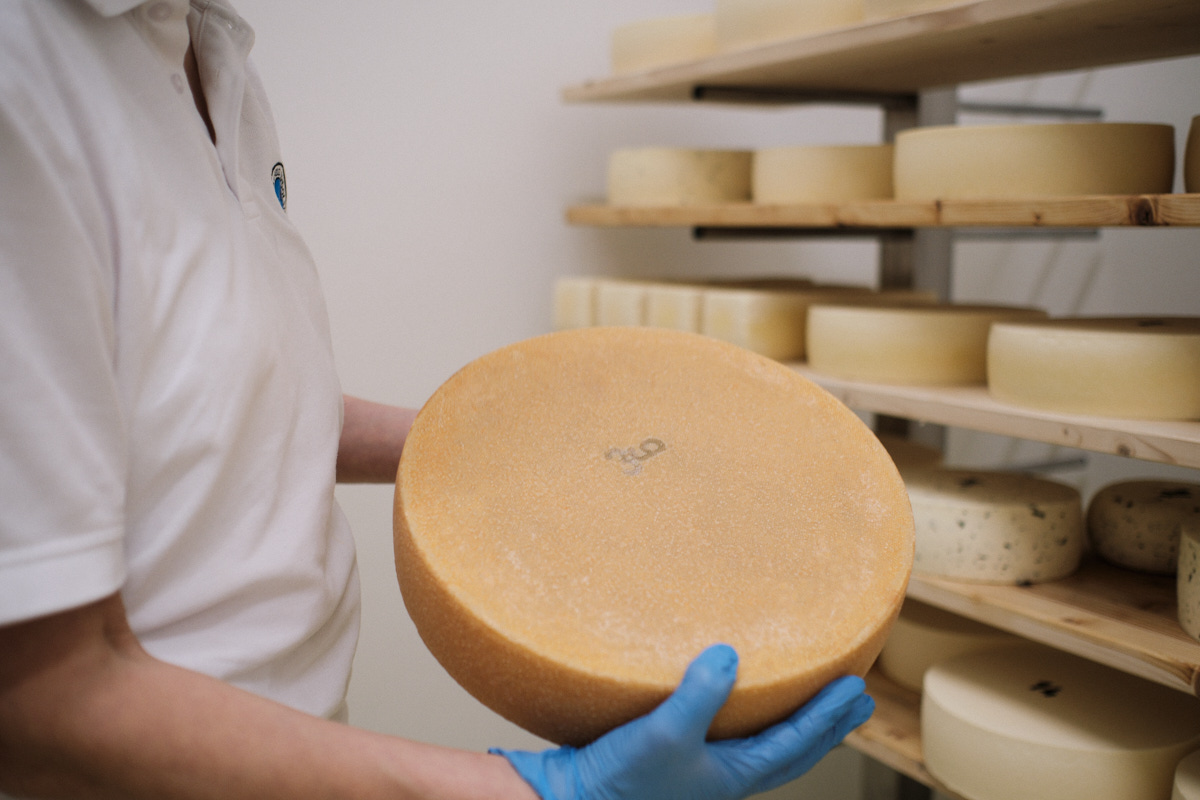In the Bauland region, thousands of litres of organic milk curdle to become soft and hard cheese. Ursula Krauth has established the Kirchenkäserei cheese dairy on an old farming estate. She founded a cooperative, in which people with and without disabilities work together.
Ursula Krauth carefully lifts the cap of a 1,000-litre container. It is half filled with thickened milk. In its centre, a rake spins, carving fine cuts into the pasteurized mass until the “Gallerte” become friable. The Sindolsheim local and wife of a priest takes a light-blue scoop and buries it in the stainless-steel container. “Good cheese is made of nothing but fine milk, cheese dairy cultures, rennet and salt,” says Ursula. Without any additives or any other ingredients.
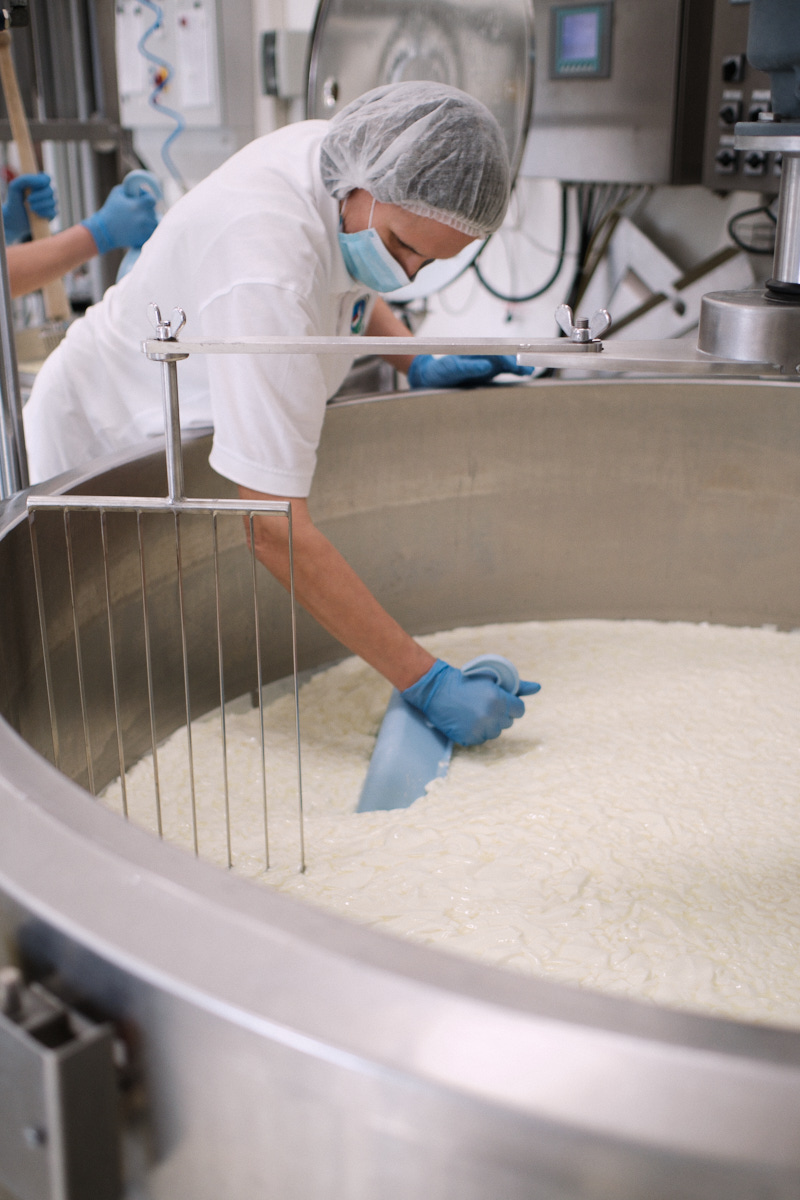
Cheese-maker Ursula Krauth: “Good cheese is made of nothing but fine milk, cheese dairy cultures, rennet and salt.”
The agricultural engineer began making cheese in Sindolsheim in 2019, after she had completed further training to become a local cheese-maker as well as a whey-specialist training programme. “I discovered my passion for cheese when I started making it,” Ursula says tersely and smiles. This happened when she lived in the Black Forest and started to process sheep’s milk in the Baar plateau region one day. But then, Rüdiger Krauth was appointed dean for one of the four parts, Sindolsheim, of the 2,000-souls municipality of Rosenberg. The municipality is located half an hour’s drive north-east of Mosbach. One third of its surface consists of forest. The family have found a new home in this place, whose streets are usually deserted, and, whose village community is all the more warmly connected. On Saturdays, when the dairy shop and the café are open, the cheese dairy is a meeting point rather than an enterprise. On these occasions, Sindolsheim locals meet on their table for the regulars to have a cup of coffee together—and a variety of cheesecakes.
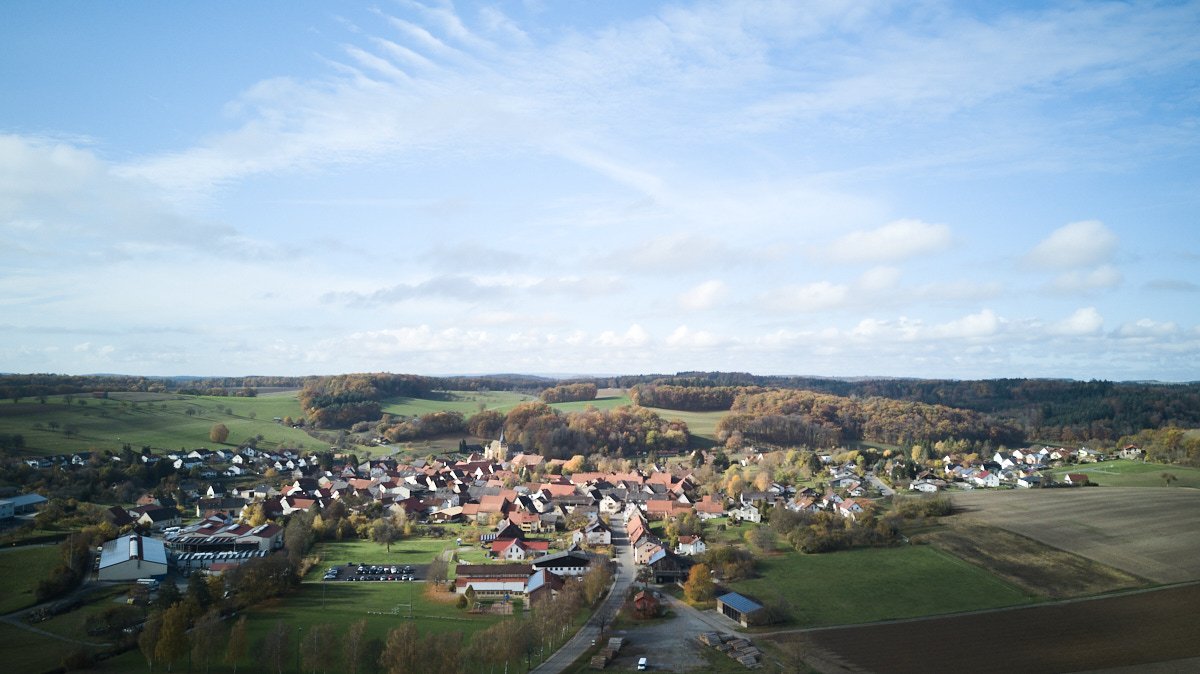
Sindolsheim – one of the four parts of the 2,000-souls municipality of Rosenberg in the Bauland region.
The idea behind the cheese dairy is a special one as well. It is a church company, integrated into a cooperative association that is linked to the Diakonie charitable organization of the Evangelical Church in Germany. This way, they put the community spirit to practice in their entrepreneurial activity. Apart from Ursula, there is a master whey specialist. The other eleven employees, Minijob employees and volunteers, two of whom have a disability, were trained by them. “I want to give people, who can’t easily access the regular labour market, a chance.” Ursula draws up the schedules according to the ability of the employees. “However, everyone has to help with the cleaning work,” she laughs.
